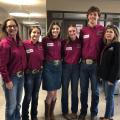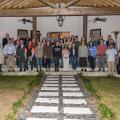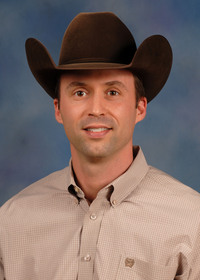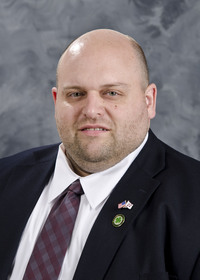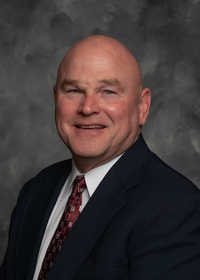Youth Livestock

The 4-H youth program is one of the oldest and largest informal educational efforts in public education in the United States. The mission of 4-H is to help young people acquire knowledge, develop life skills, and form attitudes that will enable them to become self-directing, productive, and contributing members of society. These skills are much more than physical skills and are a combination of acting, thinking, and feeling. They help 4-H'ers function as adults in society, accept responsibilities, gain ability to communicate, inquire, solve problems, make decisions, and work with other people. Junior livestock projects are educational projects that encourage young people to achieve the 4-H objectives. There is probably no other 4-H activity that has more potential for educational and personal development than junior livestock projects and shows.
The junior livestock program is a unique opportunity to use live animals to develop young people. The main objectives of the program deal with the young person, not the animal. Participants do learn about agriculture and livestock production and develop an appreciation for the livestock industry, but the main objectives are to teach life skills and help participants become productive citizens of our society. The experience of owning and working with animals; being responsible for their care, health, and growth; and exhibiting them in a competitive environment is a tremendous character-building process.
Annually, more than 7,000 people participate in the major animal science projects of beef, dairy, sheep, swine, horse, dairy goats, meat goats, and meat science. In addition to the animal project work, related activities such as judging (horse, livestock, dairy, and goat), meat judging and identification, premier exhibitor program, meats bowl, horse bowl, horse photography, horse art, horse hippology, horse public speaking, dairy bowl, and dairy products judging are included as part of the 4-H Animal Science program and contribute to the personal development of 4-H'ers.
Major junior livestock shows include the five district shows (Verona, Batesville, Greenwood, Jackson, and Hattiesburg) held in January, followed by the Dixie National Junior Round-Up held in Jackson in late January to early February. The Mississippi State Fair is also held in Jackson in early October. Also, many counties hold county, area, and jackpot livestock shows throughout the year.
The grand finale of the Dixie National Junior Round-Up is the Sale of Junior Champions. Approximately 41 to 44 champion and reserve champion animals are sold to the highest bidders at this prestigious auction. Deserving exhibitors receive scholarships, which are sponsored by the Dixie National Sale of Junior Champions Promotion Committee and the Dixie National Boosters Club.
In June each year, the district 4-H horse shows are held in different locations throughout Mississippi. This activity includes the State 4-H Horse Championship and the state educational horse contests (horse judging, horse bowl, hippology, horse public speaking, horse individual demonstration, and horse team demonstration). Mississippi can enter the top 50 horses from the state show and the top two teams and individuals from the senior nonriding contests for further competition at the Southern Regional 4-H Horse Championship. In addition, the top teams and individuals in the senior nonriding contests are eligible to represent Mississippi in the Western National 4-H Roundup in Denver, Colorado, the following January.
Publications
News
While Mississippi high school students have history, English and algebra on their schedules, several are now adding advanced animal husbandry skills to their academic load.
Brandi Karisch, beef cattle specialist with the Mississippi State University Extension Service, said Extension began offering a youth stockmanship competition this year to improve young participants’ knowledge and skills in beef cattle handling.
Success Stories
She knew she wanted to teach even when she was just a kid, but Dr. Molly Nicodemus also realized pretty quickly that she wanted to teach older students at the college level. Now an associate professor in the Department of Animal and Dairy Sciences at Mississippi State University, Nicodemus has embraced a new teaching role with adolescents and teens as a volunteer leader for the Winston County 4-H Horse Club.
In late February, Mississippi State University hosted the 2024 National Floriculture Forum, an annual conference held at different locations around the country.
She grew up in the 4-H youth development program in Indiana, and her husband was in Ohio 4-H. Fast-forward a few years, and Inez Saum became a volunteer leader for Mississippi 4-H.



